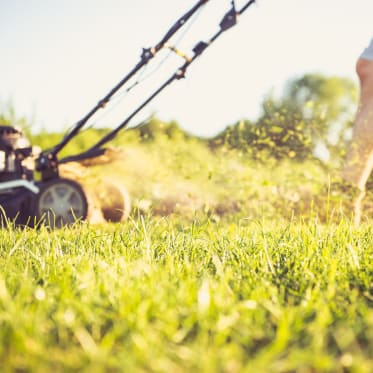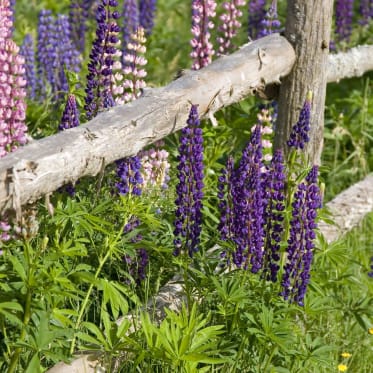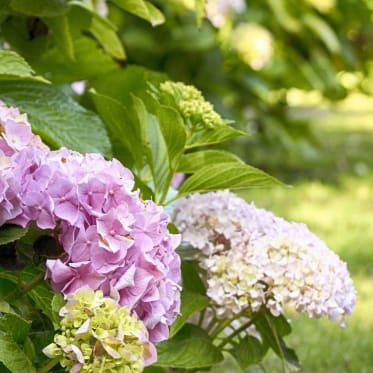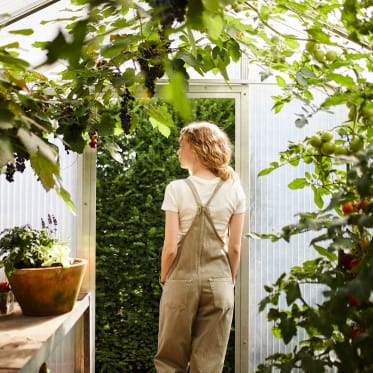Frequent search terms

- COMPO
- Guide
- Plant Care
- Garden
- Garden care
- Caring for your garden in the hot summer
Caring for your garden in the hot summer
What you can do for your plants when it's hot and dry
Do you also look back at the exceptionally hot summer of 2018 with rather mixed feelings? While we couldn't get enough of the warm temperatures, the dry weather caused a great deal of frustration for many hobby gardeners. Climate researchers agree that such dry spells will occur more often in the future. We reveal how you can prepare your plants for extreme weather conditions and minimise the risk of potential summer damage.

The best foundation: Good root penetration
Prevention is better than cure – this is particularly true when it comes to gardening work. With just a few care measures, you can help your plants weather prolonged dry periods. An important, yet often underestimated correlation in this regard: The more strongly and deeper the roots of the plants reach into the soil, the better they are able to store water and absorb moisture from the soil. Products that stimulate the roots can encourage the growth of seedlings and root penetration of already existing plants – for optimal water and nutrient storage. They also provide humus-rich soil, which can store more water for longer. By choosing the right substrate, you can positively influence the healthy growth of your plants in dry periods. Our potting soil for balcony and tub plants contains a special water deposit that stores some of the irrigation water and dispenses it to the plants as needed. The soil stays moist for longer and needs to be watered less often.

Do you prefer resilient plants?
A long-term measure that will benefit you in hot and dry periods: Adapt your garden to the changing climate requirements and plant varieties that can better tolerate the heat, e.g. lavender, common verbena, rocktrumpet and West Indian lantana. Fruit plants are also well suited and form flavourful fruits thanks to plenty of sunshine. It goes without saying that Mediterranean plants, such as citrus trees, oleander and rosemary, also enjoy warm temperatures.
Healthy plants are more resistant to dry conditions
Nutrients are a secret weapon when it comes down to protecting plants from heat and dryness. But the problem is that many hobby gardeners either do not start fertilising at all or do so too late. Our range includes special fertiliser pellets with sheep's wool that can soak up a lot of water at the beginning, improving humification and the plants' supply of nutrients and water in dry periods. Another tip for getting your plants through hot days intact is to apply mulch. A layer of lawn cuttings, foliage or crop residues reduces evaporation and protects the soil against overheating.
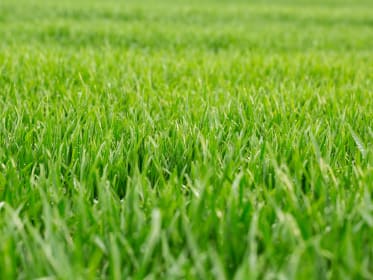
How to keep your grass green in dry periods
The lawn generally suffers the most during dry periods. Did you know that the seedcase of some of our lawn seed mixtures can store water? Nevertheless, good germination requires adequate watering (at least once a day thoroughly). But it increases the probability that the seeds will also grow in challenging weather – so play it safe when it comes to sowing. You can also prepare your lawn for potential stresses in the summer by fertilising properly at an early stage. When buying products, look out for ones that are rich in potassium, as potassium strengthens cell walls and optimises the water retention capacity of the plant. It makes the plant more resilient to dry conditions in the summer. When the weather is hot, it is better to refrain from mowing and fertilising. The grass should be at least 4.5-5 centimetres long so that it provides better shade for the soil and the lawn doesn't dry out too quickly.
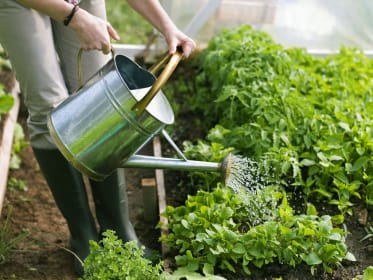
The number one rule for heatwaves: Water intelligently
In hot weather in particular, it is important to water plants in the morning. This allows the plant to dry quickly and the dewy soil absorbs the water well. If you were to water at noon, the leaves could burn and watering in the evening poses the risk of the plants remaining wet and spreading fungal diseases more quickly. It is better to water once thoroughly than more frequently on the surface. Plants can only form deep roots and use water reserves when the soil is regularly soaked. As moist soil can better absorb water, you should first only water the soil briefly and then water it thoroughly after 10 to 15 minutes. It is best to use rain water. This has a positive effect on your water consumption, the environment and also benefits the plants, as it is free from lime and has a pleasant temperature.
Find out more
All about gardens

